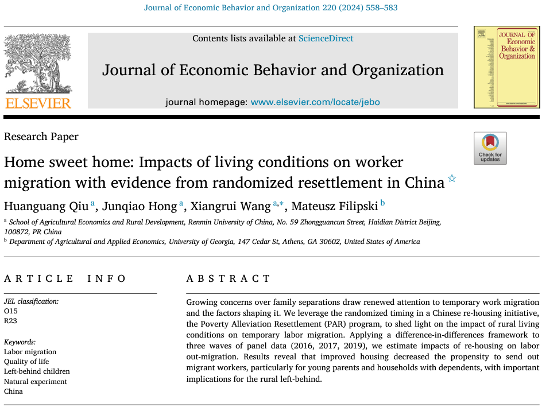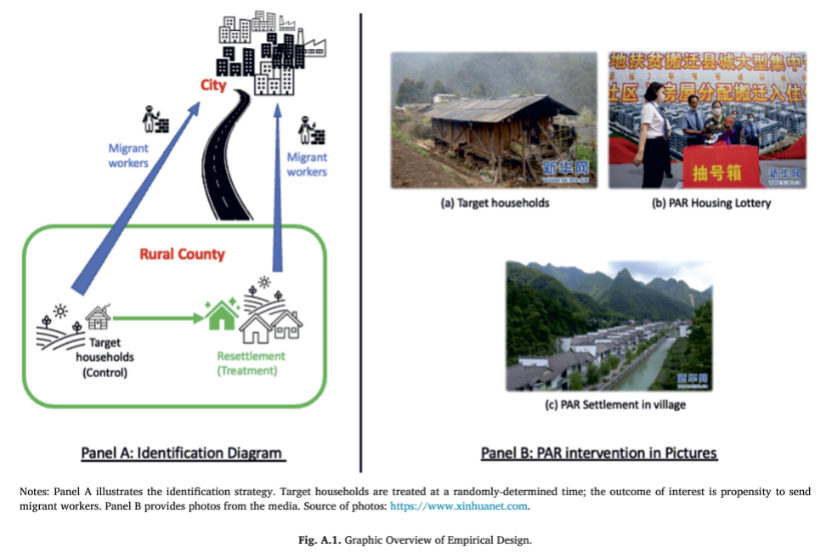Professor Qiu Huanguang, Associate Professor Wang Xiangrui and PhD student Hong Junqiao from the School of Agricultural Economics and Rural Development, Renmin University of China (RUC) recently published a paper in the prestigious Journal of Economic Behavior & Organization (JEBO) in collaboration with Associate Professor Mateusz Filipski from the University of Georgia. The paper is titled “Home Sweet Home: Impacts of Living Conditions on Worker Migration with Evidence from Randomized Resettlement in China”.

Abstract
Growing concerns over family separations draw renewed attention to temporary work migration and the factors shaping it. We leverage the randomized timing in a Chinese re-housing initiative, the Poverty Alleviation Resettlement (PAR) program, to shed light on the impact of rural living conditions on temporary labor migration. Applying a difference-in-differences framework to three waves of panel data (2016, 2017, 2019), we estimate impacts of re-housing on labor out-migration. Results reveal that improved housing decreased the propensity to send out migrant workers, particularly for young parents and households with dependents, with important implications for the rural left-behind.
Findings and Contributions
The Poverty Alleviation Resettlement (PAR) program is a monumental undertaking in the history of human migration and global poverty reduction, forming a crucial part of the “Chinese Solution” for poverty alleviation in the new era. Over 9.6 million impoverished individuals identified through household registration systems have relocated to new, more livable homes. Using PAR in a quasi-experimental design, this paper finds that improved living conditions decrease the propensity for labor migration, particularly for households with children and elderly members.
The contributions of the paper lie in three aspects. First, previous research on living conditions and migration decisions lacks the identification of causal relationships. This paper utilizes the randomness in relocation sequences to construct econometric models, providing, for the first time, causal evidence derived from quantitative analysis using quasi-experimental data. Second, the impact of surrounding environments on human production and living decisions has always been a focal point for economists. Previous studies have often relied on large population migration projects such as “Moving-to-Opportunity” in the United States and “Transmigration” in Indonesia. This paper explores China’s Poverty Alleviation Resettlement (PAR) program instead, offering experiences and evidence from China. Third, this paper extends the classic theoretical model of household labor migration decision-making proposed by McKenzie and Rapoport (2007).

Link to paper
https://authors.elsevier.com/c/1ih7Bc24b7G6i
About the Journal
Journal of Economic Behavior & Organization was founded in 1980. It primarily publishes theoretical and empirical research related to economic decision-making, organizational behavior, and economic change.



